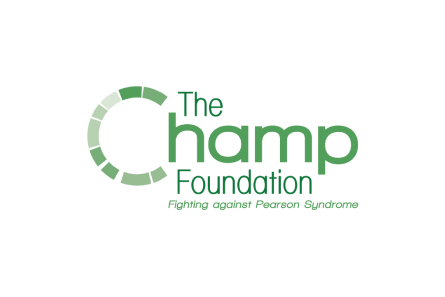The Champ Foundation
Cycle 1
Pearson Syndrome (PS) is a multi-system disease caused by a deletion in mitochondrial DNA. The hallmark features are sideroblastic anemia and pancreatic insufficiency. PS is often fatal in infancy. In addition to the hematological and pancreatic symptoms, PS can impair the heart, kidneys, eyes, ears and brain. Survivors develop Kearns-Sayre Syndrome.
Last updated May 2024
Clinical
Disease Class
Rare Mitochondrial Disease
Rare cardiac diseases
Rare genetic diseases
Rare hematological diseases
Rare inborn errors of metabolism
Rare neurological diseases
Rare ophthalmic diseases
Body Systems
Cardiovascular / Circulatory
Digestive
Endocrine
Hematopoietic / Lymphatic / Immune
Integumentary / Exocrine
Metabolic
Muscular / Skeletal
Nervous / Sensory
Renal / Urinary / Excretory
Organs
Blood vessels (veins, arteries)
Bone marrow
Brain
Connective tissue / joints
Ears
Eyes
Heart
Intestines
Kidneys
Liver
Lungs
Lymph fluid, nodes, ducts, vessels
Muscles
Nose
Pancreas
Parathyroid
Skin
Stomach
Throat
Thyroid
Genes
None specified / unknown
Type of Inheritance
De novo
Disease Mechanism(s)
Mitochondrial defects
Mitochondrial dysfunction
Age of Onset
Adolescence (12-17)
Early childhood (age 1+-5)
Infancy (age 0-1)
Middle childhood (6-11)
Incidence
Less than 10
Prevalence
101-1000
Symptoms / Phenotypes
anemia
diabetes
diarrhea
failure to thrive
fatigue
pain, abdominal
Biomarkers
None
Existing Therapies
None
Organizational & Research
Cell Lines
Fibroblasts
iPSCs
Cell Lines, location
Boston Children's Hospital
Cell Lines, share
IDK
Disease Model
C. elegans
Disease Model, location
University of Cambridge MRC Mitochondrial Biology Unit (MBU)
Disease Model, share
No
Clinical Trial Role
Data analysis
Data sharing
Funding
Meeting with regulators
Outcome measures, development
Recruitment and outreach, patients
Recruitment and outreach, trial sites/physicians
Results dissemination, publication
Study material design, review (not protocol)
Study protocol design, review
Travel coordination
Biobank
Boston Children's Hospital
Center of Excellence
Children’s Hospital of Philadelphia (CHOP)
Cleveland Clinic
Registry
Yes, we have a registry that we created
Data Collected, Registry
Clinical data
Electronic health records/electronic medical records
Genetic data
Longitudinal natural history data
Medication usage
Patient contact info
Patient-reported data
Data Entered by, Registry
Both
Platform, Registry
Ordinal Data
Natural History Study
Yes, we have a natural history study that we created
Data Collected, Natural History Study
Clinical endpoints (outcomes)
Electronic health records/electronic medical records
Medication usage
Patient-reported outcomes
Prospective data
Retrospective data
Platform, Natural History Study
Ordinal Data
FDA Patient Listening Session
No
FDA Patient-Focused Drug Development (PFDD) Program
No
ICD Codes
No, we do not have any ICD codes
Diagnostic Guidelines
No
Clinical/Treatment Guidelines
No
Organizational Roles
No full-time staff
Science Advisory Board Policies
Yes, willing to share SAB policies
Research Network Policies
Has CRN and willing to share policies
Research Roadmap
We don't have a Research Roadmap
International Chapters
None
International Partners
Europe
North America
Oceania
